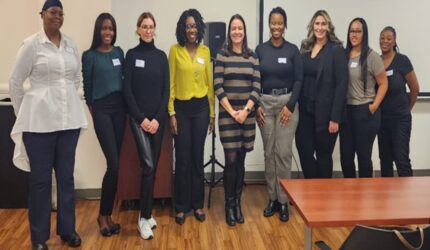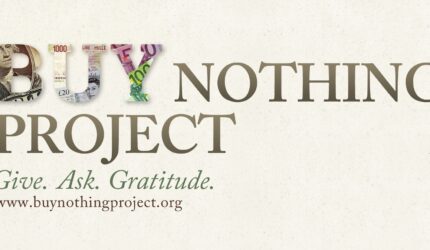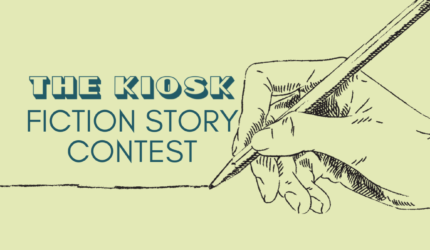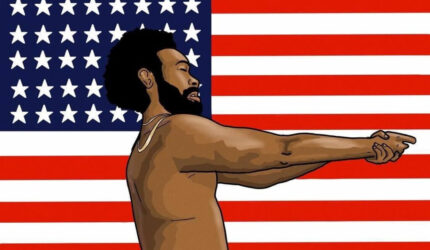Editor’s note: Samantha Funk’s ‘Dear Marley’ won second place in The Kiosk’s Fall 2023 Fiction Story Contest.

My professor’s icy blue eyes dart across the classroom. Sometimes I get fired up in class, literally. My skin burns and I feel a rush down the back of my neck. There’s an urgency to speak. We are discussing the idea of home. What does home mean, and how do we begin to define it? Throughout my life, there was tension and abuse within the home that played out rather subtly. I was socialized into the reality of creating my own home and community where I got to define the terms. As an 18-year-old first-year college student, I was just beginning to explore this idea as I worked to unpack the density of layered experiences present throughout my childhood. The rush down the back of my neck presents itself again.
My hand shoots up to respond to the prompt and I fumble my words when sharing: “Well, I think home is subjective to your own experience. Just like notions of safety. What’s safe is relative. What we consider home is what we consider known or familiar. Whatever it is that we’ve normalized for ourselves and our loved ones. We can normalize anything.” The icy blue eyes take a split second to demonstrate that Professor Sampson is computing my comment. He follows with, “Well, my wife’s family fled from their war-ridden town to come to America. I am not so sure they’d agree with you there.” There’s nothing to say but, “OK, yes Dr. Sampson.” I don’t bother offering that, instead I sink down into my chair shamefully.
Just last week in this same seminar-style classroom, I sat at the long table on a mahogany chair. A team of upperclassman college students came in to facilitate a training workshop about sexual assault. This training is required of all college students on my campus, and I had been dreading it. As the workshop unfolded, the reality that I had been sexually assaulted presented itself again. I’d always wondered if I had actually been sexually assaulted, but this reality lived more in my body than it lived as a present and acknowledged part of my life story.
My assault occurred at my high school, in the parking lot after my 10th grade homecoming dance. Within the walls of this high school, I was a nerd. I was also well-loved, well-known, smart, popular, even. At Prairie Hill High, I began the life-long process of exploring my identity and reflecting on my experiences thus far. In my newspaper elective, I wrote fervently in a weekly advice column, “Dear Marley,” about how to fit into the high school social scene, targeting advice to a lot of underclassmen at Prairie Hill. I was a fraudulent journalist-in-training though, because in the parking lot, that sense of home was taken from me without my consent. From that moment, I had no idea who I was or where I was going in life; my sense of who loved me, who would keep me safe, who I should be scared of, it all changed.
“You’re more comfortable in a room full of strangers than with your own family, Marley,” Mom always recounts. She repeats her truth about her perception of my own frame of mind to the point that it has become her own ritual, her own mantra. What I consider to be one of my better qualities, Mom encodes as a slight to her and my upbringing. Perhaps it is; I was taught my white feminism and my adherence to patriarchy, racism, and unconscious bigotry as a young girl through the blind spots of my mother’s embodied perspective. I resented that, which in turn made me resent her. “Surely there was more to life, more to the world than this,” I thought to myself, as I picked at my nail beds.
When I studied abroad, or embarked on an exciting new adventure, I had no fear of the unknown. Sometimes this lack of caution put me in precarious situations. Like the numerous times I flippantly told strangers my life story over a cup of coffee, my openness to the unknown once again placing me in a space of vulnerability without me even realizing it. For years, I sat comfortably in the reality that I was safer in the company of the unknown. The known and the familiar were both monotonous, taxing, and painful. Surely the rest of the world would treat me with gentleness, right? The fear existed there, in the known. In the little car in that faded parking space where my lips were bound with duct tape and where I silently retreated into myself, picking glass from my hair as if they represented the pieces of myself that were forever lost. The fear of this memory was reliable, predictable, salient.
It took me time and enrollment in the so-called “school of hard knocks” to unlearn this generalization I had made about the safety of the unknown. To learn that there’s both an incredibly justifiable presence of fear and danger in the “unknowns” of the world, just as much as the “knowns.” I should say there’s potential to be scared of who could harm you in any environment you enter. There’s just as much risk in meeting someone new as there is in attaching yourself to community. That could warrant a constant state of fear as a front-facing disposition, but for me it was developing the deep relationships in my life that brought about that genuine fear. All things considered, I still chose to drown out this fear when I chose to embrace community.
I came to this choice most transparently through my growing relationship with Justin. Justin sits on the crux of being both the most complicated person I know, while also being the friend in my life who is the easiest to talk to. As I began to interrogate the abusive lens of how I was treated within my own home growing up, my sexual assault trauma, and my positionality as a white woman in America, I began to see the layers of who I was as Marley, and what relationships I wanted to pursue and deepen in my life.
Justin and I are basically the exact same age, just three months apart. Seven years ago, when I sat in that classroom learning about my sexual assault as I began my college journey; Justin was also 17 years old, but he was a Black kid who had just gotten arrested and thrown in jail. For seven years, he was incarcerated for stealing money from a delivery driver. The cops who searched him found a knife in his pocket, and he was charged with armed robbery. Justin has become a catalyst for deep-rooted internal change unlike any other in my life. You wouldn’t know it by looking at us talking, laughing, and eating scallion pancakes on Mott Street. Yet, he has changed me, I believe I have changed him, we have been active participants in changing each other. It is cosmic, and the closeness ever-expanding. Throughout those seven years while Justin was incarcerated, I began a romantic relationship with my best friend, DJ, who has become my bewildering, steadying, and trusted life partner. We fell in love, we went to the same college together, and graduated together. When DJ got into graduate school, we decided together that I would move with him across the country. We lived in a 400-square-foot apartment with cracked walls and busted wood floors in New Haven, CT. It was in this joy-filled apartment in a new city that I also felt lonely and really isolated from community. I craved community, I began to crave the deep relationships that I had once feared. I was ready for deep, intimate, soulful relationships in my life for what felt like the first time. This random thought popped into my head, and I went online and found a program where you could write to people who were incarcerated. Justin was incarcerated an hour away from me in Stamford, CT. I saw that he was my age, and I assumed that we were nothing alike and that our letters would be some kind of interesting cultural exchange. Most notably, I thought I would write to Justin and I would never get a response.
I could not have been more wrong about Justin, about myself, or our budding friendship. He wrote me back right away, and we wrote to each other for the entire time I lived in New Haven, and he supported me during my next move to the Big Apple so I could begin my graduate studies. Every “Dear Marley,” felt like coming home. I validated my ever-present learning that strangers are not always people to fear, but I also began to embrace and accept all that I didn’t know about the world, instead of shame spiraling. I learned that Justin’s house burnt down in Brooklyn while he was sleeping peacefully inside of it. I learned that in addition to almost losing life as he braved the journey through the flames, that he also lost all of his material possessions. He lost pieces of himself that he couldn’t get back. I learned that his Uncle and primary caregiver was absent, and with no parent, and no home, he stole the money from the delivery driver as a desperate attempt to get his life back.
In learning Justin’s story and empathizing with his journey, I began to see the stark parallels in our experiences. I understood what it was like to act out of desperation, to act out of the lived experience of feeling like you had lost everything, and that in this process you have lost yourself. Justin and I began to know each other in a way so intimate that it felt like everything I had been through was in this tangible, almost magical way, for something. When Justin was released from prison, we felt a rush of relief together. Like both of us could breathe easy and let go of the versions of ourselves that no longer served us. I understand now those overused pseudo-therapeutic phrases like, “Ignorance is bliss,” or “Knowledge is power,” or even, “We fear the unknown.” We allow ourselves to fear the unknown, simply because we don’t know it. The only choice to make is to start knowing it, no matter what risks you might need to take, no matter the personal cost. Start knowing it.





